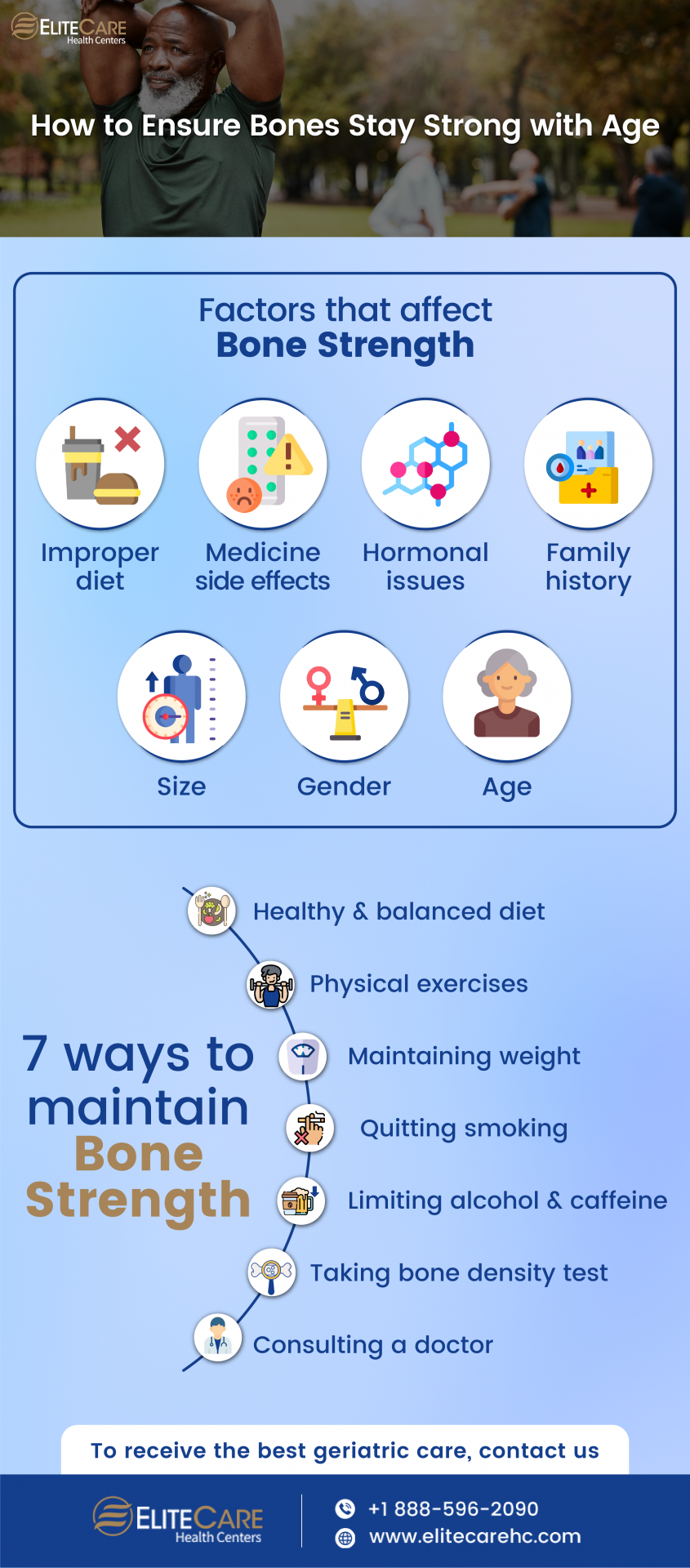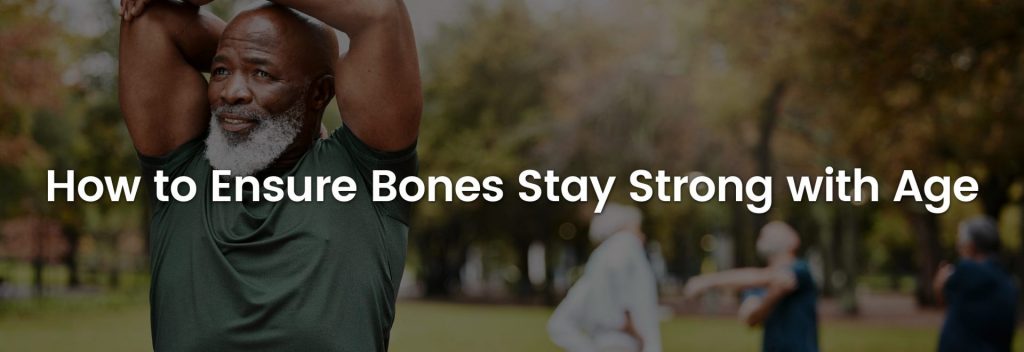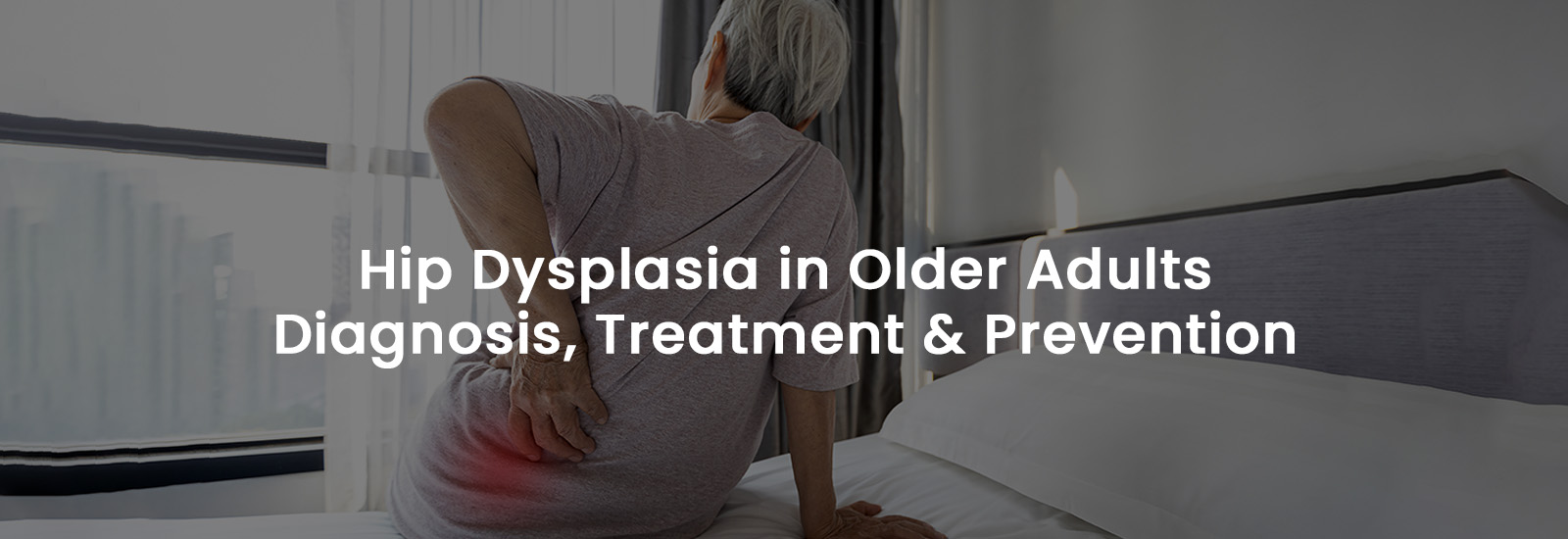
Bone-related issues are common in seniors due to their diminishing bone mass. According to a recent report, approximately 13% of 14.1 million Americans above the age of 50 – have osteoporosis – which causes weak and brittle bones. Maintaining strong bones is essential as you age.
In the early stages of life, bones absorb nutrition better, ensuring their optimum growth and strength till the age of 30. This is the time when bone mass and strength are at their peak. With age, bones begin to lose their density and strength which causes problems as one grows older. Additionally – bones are more likely to be weak and brittle and break easily – if there are not enough reserves of bone mass and strength built in the younger years.
What is Osteoporosis?
It is a condition when the bones start degenerating and losing mass and strength. The extent of degeneration may vary for each individual. The condition may become critical – making it difficult to maintain a correct posture or even causing bone fractures and breakages. The disease shows no obvious signs, and hence it is difficult to diagnose it early on.
Read More: A Complete Guide to Managing Osteoporosis in Seniors
Factors that Affect Bone Strength
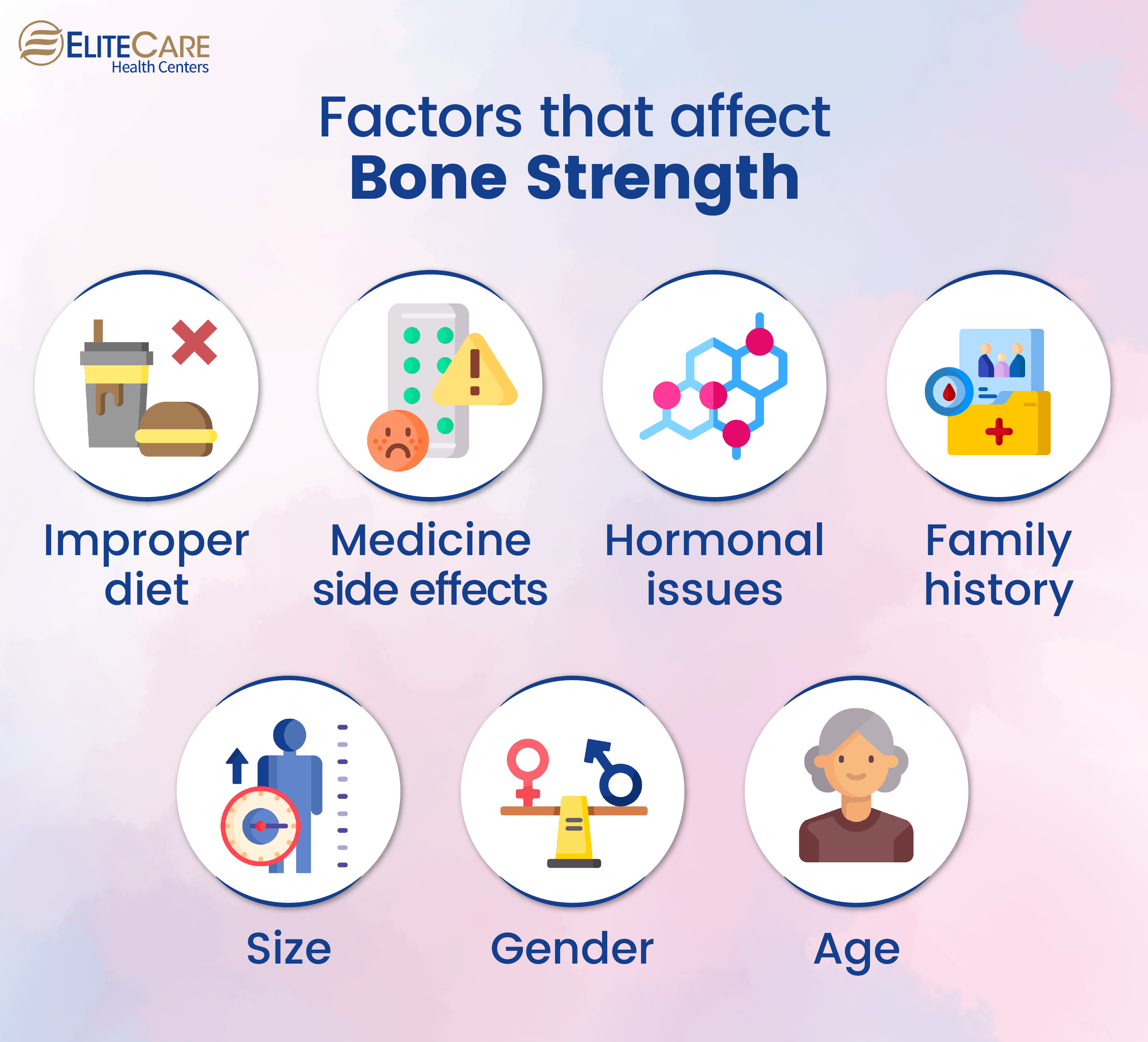
There are several reasons that could affect bone strength which are as follows:
Family history
If there is a family history of osteoporosis, there is a greater chance of you having weaker bones.
Gender
A report from the Centers for Disease Control and Prevention of 2017-2018, tell us that women have lower bone density than men. It also adds that nearly 27% of women and only 6% of men aged 65 and above have developed osteoporosis, although not all bone density issues lead to osteoporosis. This can be also because the calcium reserves, which contribute to bone density, dip after childbirth in all women.
Size
If your body mass index is lower than 19, you are likely to get osteoporosis. Lower BMI indicates deficiency of bone mass – which further decreases with age.
Age
As mentioned, bone density decreases with age, making the bones grow thinner and weaker and leading to increased risk of osteoporosis.
Prolonged use of certain medicines
Over time, some medicines like – prednisone, cortisone, or certain cancer treatment drugs, have side effects that can lead to bone damage.
Poor eating habits
A poor diet that lacks nutrients can lead to degeneration of bone tissue. Similarly, surgeries for weight loss and celiac disease also affect the body’s ability to absorb calcium and result in weaker bones.
Hormone imbalances
Men and women suffer from different types of hormonal imbalance. During menopause, estrogen level drops and leads to significant loss of bone mass in women. In men, low testosterone levels can put them at risk of weakened bones.
Here are 7 Ways to Maintain Bone Strength
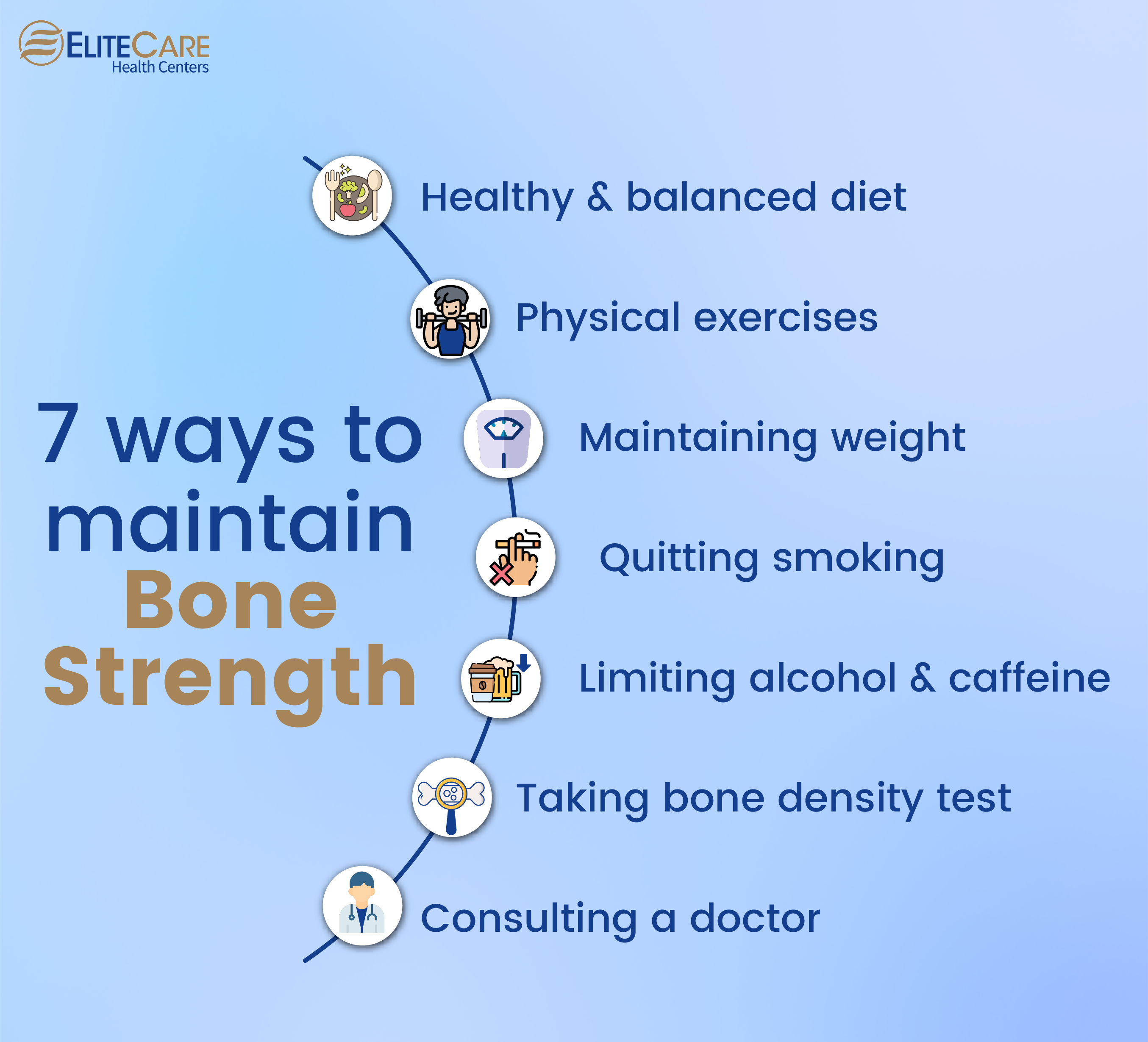
1. Have a healthy & balanced diet
The diet of a senior must be well-balanced so that the body receives the right amount of nutrients. It must include sufficient calcium, and proteins for bone health. Also, an adequate amount of vitamin D-rich food must also be added to the diet which can help the body to absorb calcium from the food.
As it may be difficult to get adequate intake of vitamin D from one’s diet. A provider may prescribe a supplement.
Another way to try and get Vitamin D – is via direct sunlight exposure for limited times during the day.
2. Be physically active and include strength training exercises
As you age, it is important to exercise not just for fitness but to maintain a healthy weight, good heart health, and strong bones. Regular activities stimulate those cells that build bones. Strength training, aerobics, and weight-bearing exercises can help you achieve stronger bones. Start with daily activities such as brisk walking, cycling, or take assistance from a physical trainer for simple exercises that you can add to your daily routine.
Read More: Importance of Healthcare and Wellness
3. Maintain healthy weight
Being overweight can cause problems as obesity lowers bone strength increasing risk of breakage.
4. Quit smoking
The effects of smoking on your health while you age are not limited to the most common health issues, but can also be detrimental to your bones too. Luckily, the negative effects of smoking on bones can be corrected and slowed down after one quits smoking.
5. Limit alcohol and caffeine
Excessive intake of alcohol and caffeine can dehydrate the body and hamper its ability to absorb minerals and vitamins. Consider switching to herbal teas and decaff blends. Also, keep the body hydrated with plenty of water.
6. Get a bone density test
If you experience any kind of physical changes in posture or frequent cramps or joint pain, or are unable to keep steady, you should get a bone density test done after consulting with the doctor. Here are a few additional signs that can indicate weak bones:
- Muscle cramps
- Spasms
- Fatigue
- Tooth decay/gum disease
- Abnormal heart rhythm
- Dry skin
- Confusion or memory loss
- Loss of height
- Back pain
If you are experiencing any of these issues for a prolonged time period, do consult an experienced medical professional who will assess your bone health. Bone density scanning will help you detect fragile bones which are vulnerable to breaking. The test is highly recommended for those over 65, who are at an increased risk of osteoporosis.
7. Consult a doctor to check your risks factors for osteoporosis
Early and prompt treatment can help reduce continued loss of bone mass and treat the possibilities of osteoporosis. A yearly physical examination will ensure you remain healthy.
Most people are unaware of weakening bones and the possibilities of osteoporosis which goes unnoticed till it gets severe. Though little can be done to prevent bone loss at an older age, a healthy routine and pre-emptive checkups can prevent the problem from getting worse. Schedule an appointment with your healthcare provider or senior care services for a routine check-up.
To fix an appointment, you can call us at 1-888-596-2090 or visit the EliteCare Health Centers located closest to you.
- Tags:health and wellness centerhealth and wellness serviceshealth care centerhealthy boneshow to make bones strongknee pain treatmentmedical cliniconline doctor consultationpreventive careprimary careprimary care physicianprimary care servicesprimary servicessenior care serviceswellness care centersyearly physical exam
